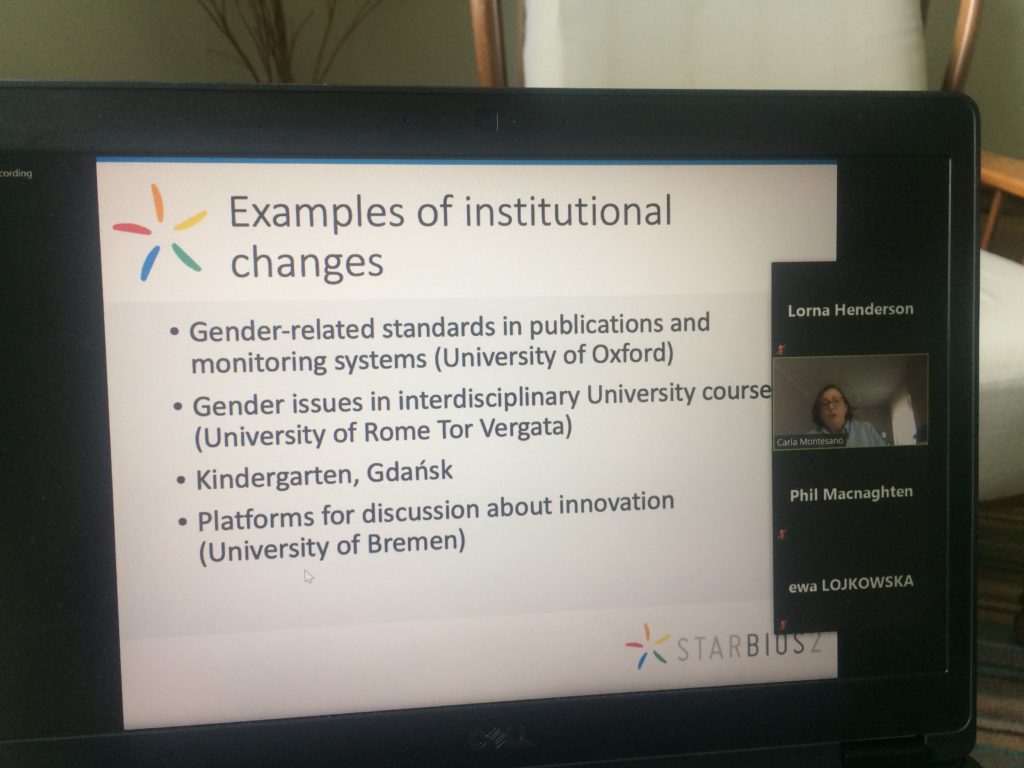Oxford BRC-funded researchers have presented important new findings in the field of gender equity and women in Biomedical Research Centres at the final event of the international STARBIOS2 project.

Started in 2016, STARBIOS2 (Structural Transformation to Attain Responsible BIOSciences) is a European project, funded by the European Commission’s Horizon 2020 programme, which aims to implement a Responsible Research and Innovation (RRI) approach in research institutions.
New research papers outlining gender research were presented by Oxford BRC researchers Dr Lorna Henderson, Dr Sarwar Shah and Dr Pavel Ovseiko to an audience of 180 senior international policy makers and academics at the event, held online due to COVID-19.
STARBIOS2 has catalysed the first studies of gender specific to biomedical research centres in the UK and also important new benchmarking, including a survey of new markers of achievement for women in science and a study examining authorship and gender in collaboration with colleagues from the University of Oxford’s Medical Sciences Division and the Bodleian libraries. An important new study on Athena SWAN was also published recently.
During the course of the STARBIOS2 project, a set of guidelines and a sustainable model for RRI implementation in bioscience research institutions were developed.
Over the course of four years, six bioscience research institutions in Europe, and three outside Europe, worked together to achieve structural change towards RRI in their own research institutions, with the goal of achieving responsible biosciences.
Dr Vasiliki Kiparoglou, the Oxford BRC’s Chief Operating Officer and a member of the research team, said: “The Starbios2 project has been a fantastic opportunity for the NIHR Oxford BRC to showcase and strengthen activities on gender equity research. We have had the opportunity to collaborate with colleagues across the globe, sharing good practice and principles.
“We believe our new research will facilitate bench-marking progress in gender equity for women in biomedical research centres and welcome the opportunity to continue collaborations in this important area.”
Dr Henderson, the Oxford BRC’s Clinical Research Manager, added: “The BRC is committed to Athena SWAN and supporting women in science. The new research catalysed by the STARBIOS2 project provides an important evidence base specific to biomedical research centres.”